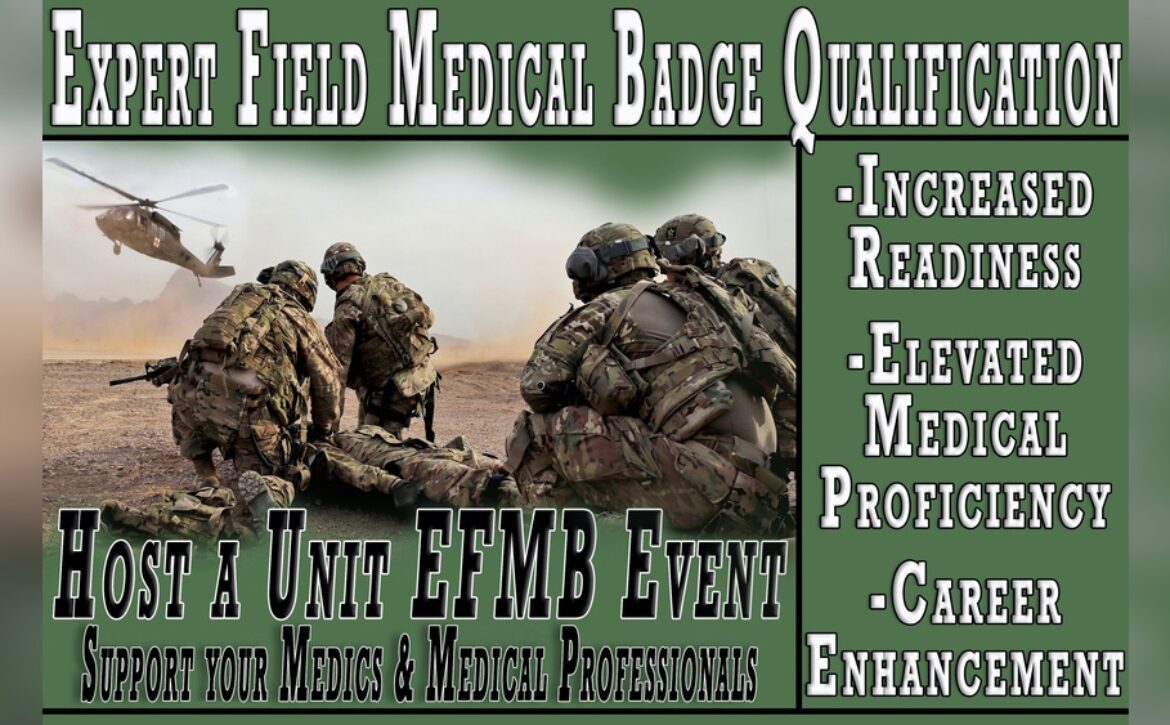
How to Become a Medication Administration Course Expert
Are you considering a career where you can make a real difference in people’s lives? Becoming skilled in medication administration could be your gateway to a fulfilling role in healthcare.
This essential skill ensures patients receive their medications safely and correctly, making you an invaluable part of any medical team. But how do you start on this path? You’ll discover everything you need to know about enrolling in a medication administration course.
From understanding the basic requirements to uncovering the secrets of the best training programs, we have you covered. Ready to take the first step towards a rewarding career? Let’s dive in and explore how you can become a proficient medication administrator.
Medication Administration Basics
Embarking on a journey to master medication administration is both an exciting and crucial step in your healthcare career. Understanding the basics of medication administration is essential, not only for your professional growth but also for the safety and well-being of those in your care. This foundational knowledge sets the stage for more advanced skills and allows you to provide effective and safe patient care.
Essential Skills And Knowledge
To excel in medication administration, you need to develop a specific set of skills and knowledge. First, familiarize yourself with different types of medications and their effects on the body. This understanding helps you anticipate and manage potential side effects.
Next, accurate dosage calculation is critical. Miscalculations can lead to severe consequences, so practice regularly to sharpen your skills. You should also learn to read and interpret prescriptions accurately, ensuring you administer the right medication to the right patient.
Finally, developing strong communication skills is vital. You must be able to explain medication instructions to patients clearly, ensuring they understand how and when to take their medications. Can you imagine the impact of a simple miscommunication on a patient’s health?
Common Challenges
Even with a solid foundation, you may encounter challenges in medication administration. One common issue is dealing with patient non-compliance. Patients sometimes forget or refuse to take their medications, which can be frustrating and harmful to their health.
Another challenge is staying up to date with the ever-evolving pharmaceutical landscape. New medications and guidelines are introduced regularly, and keeping abreast of these changes is essential to provide the best care. How do you stay informed about the latest developments in your field?
Finally, managing time effectively can be difficult, especially in busy healthcare settings. You need to administer medications timely while juggling other responsibilities. Developing a systematic approach and prioritizing tasks can help you navigate this challenge.
Reflecting on these challenges, consider how you can turn them into opportunities for growth and improvement. What strategies can you implement to overcome these hurdles and enhance your practice?
Educational Pathways
Explore the steps to enroll in a Medication Administration Course. Understand the prerequisites and application process. Gain skills to safely manage and administer medications.
Embarking on the journey to become skilled in medication administration is both a noble and rewarding pursuit. Understanding the educational pathways that lead to this expertise is crucial. Whether you’re considering certifications, degrees, or the mode of learning, each step shapes your proficiency and confidence in administering medication safely.
Certifications And Degrees
Choosing the right certification or degree can be pivotal in your career. Certifications like the Certified Medication Aide (CMA) or Certified Medication Technician (CMT) are popular choices for many. These programs often take a few months and provide focused training on essential medication administration skills. Degrees in nursing or healthcare offer a broader scope and deeper knowledge. An associate’s or bachelor’s degree in nursing not only covers medication administration but also provides a comprehensive understanding of patient care. If you’re passionate about a long-term healthcare career, investing time in a degree might be the right path for you.
Online Vs. Traditional Learning
Deciding between online and traditional classroom settings can significantly impact your learning experience. Online courses offer flexibility, allowing you to learn at your own pace and schedule. This is ideal if you’re balancing work or family commitments. Traditional classroom settings provide direct interaction with instructors and peers. This can be beneficial if you thrive on real-time feedback and hands-on practice. Consider what environment helps you learn best and aligns with your lifestyle. Think about how you learn most effectively. Do you value face-to-face discussions, or do you prefer the convenience of logging in from anywhere? Your answer can guide you to the best educational pathway for your needs. Incorporating these educational elements into your plan will pave the way for a successful career in medication administration. Remember, the choice is yours, and each path offers unique benefits to help you achieve your goals.
Gaining Practical Experience
Gaining practical experience is a crucial step in your journey to becoming proficient in medication administration. Hands-on learning bridges the gap between theory and real-world application. It builds your confidence and competence in dealing with medications safely and effectively.
Internship Opportunities
Internships offer invaluable experience in the healthcare field. They allow you to apply what you’ve learned in a controlled environment. You’ll work alongside seasoned professionals, observing and participating in the medication administration process.
Consider reaching out to local hospitals or clinics to inquire about internship programs. Many facilities offer structured programs designed to enhance your skills. You might find yourself in a bustling hospital ward or a quiet clinic, each providing unique learning experiences.
During my internship at a community health center, I learned the importance of attention to detail. Missing a small instruction on a prescription could lead to significant consequences. This experience taught me the value of double-checking every step in the medication process.
Shadowing Professionals
Shadowing is another excellent way to gain practical experience. It allows you to observe professionals in action without the pressure of performing tasks yourself. You can learn techniques and best practices by watching experts handle medication administration.
Approach experienced nurses or pharmacists and express your interest in shadowing them. Many professionals are open to mentoring eager learners. This can be a golden opportunity to witness their daily routines and ask questions about tricky situations they encounter.
While shadowing a veteran nurse, I noticed her interactions with patients were as vital as the medication itself. She emphasized communication to ensure patients understood their treatment. This experience highlighted the importance of patient education in medication administration.
Are you ready to step out of the classroom and into the real world? Gaining practical experience through internships and shadowing professionals can be your gateway to mastering medication administration. How will you take advantage of these opportunities to enhance your skills?
Networking In The Field
Learning how to become a medication administration instructor involves networking with seasoned professionals in the field. Building connections with experts can provide valuable insights and guidance, helping you gain practical knowledge and skills essential for effective teaching.
Networking in the field of medication administration can open many doors. It is a crucial step in advancing your career. Building connections with other professionals helps you gain valuable insights. It also allows you to stay updated with industry trends. Networking is more than just exchanging business cards. It’s about forming meaningful relationships. These relationships can guide and support your career growth. Let’s explore two important aspects of networking.
Building Professional Relationships
Building professional relationships starts with genuine communication. Attend workshops and seminars in your field. Engage actively with speakers and participants. Share your experiences and listen to theirs. This fosters mutual respect and understanding. Follow up after events with a simple email or message. Express gratitude and interest in further discussions. Social media platforms like LinkedIn can also be useful. Connect and engage with professionals regularly. Comment on their posts and share relevant content. This keeps you on their radar and strengthens your relationship.
Joining Industry Associations
Joining industry associations can be highly beneficial. These groups offer access to a wealth of resources. They often host events, webinars, and workshops. Attend these to expand your knowledge and meet peers. Association memberships provide credibility and visibility. They signal commitment to your profession. Associations often have forums for discussion and collaboration. Participate actively to share and learn from others. You can also volunteer for committees or projects. This increases your involvement and builds leadership skills. Associations can be a gateway to new opportunities. They connect you with people who shape the industry.
Staying Updated
Staying informed is key to becoming a medication administration course. Explore updated resources and guidelines regularly. Join workshops, webinars, or online forums to enhance your knowledge and skills.
Staying current in the ever-evolving world of medication administration is crucial for anyone looking to excel in this field. Not only does it enhance your professional skills, but it also ensures the safety and well-being of those under your care. By prioritizing continual learning and adapting to new trends, you can stay ahead of the curve and provide the best possible care. Let’s dive into how you can stay updated effectively.
Continuing Education
Continuing education is key to staying updated in medication administration. Consider enrolling in workshops or online courses that focus on the latest practices and innovations in the field. These learning opportunities often provide certifications, which can boost your credibility and open doors to new job prospects. Participate in webinars and conferences where experts share their insights. These events not only broaden your knowledge but also provide networking opportunities with peers and leaders in the industry. You never know when a chance meeting might lead to a new career opportunity or an enlightening perspective. Ask yourself: How can you integrate what you’ve learned into your daily practice? Apply new techniques and knowledge consistently. This proactive approach ensures that you’re not just learning but also evolving with the industry.
Following Industry Trends
Keeping up with industry trends is just as important as formal education. Subscribe to reputable medical journals and newsletters to receive the latest news and research. Staying informed helps you anticipate changes and adapt your practice accordingly. Social media platforms and online forums can also be valuable resources. Join groups where professionals discuss recent developments and share experiences. These discussions can provide real-world insights that are not always covered in textbooks or courses. Think about the last time you learned something unexpected from a colleague or an article. How did that change your approach? By continuously engaging with the community and current trends, you ensure that your knowledge remains fresh and relevant.
Developing Teaching Skills
Developing teaching skills is crucial for anyone aspiring to lead a medication administration course. Effective teaching ensures that students grasp complex concepts. It fosters an environment where learning is engaging and memorable. This section explores key aspects of teaching skills.
Effective Communication
Clear communication is the cornerstone of successful teaching. Speak simply and avoid jargon. Use examples to explain complex ideas. Encourage questions and provide clear answers. Listen actively to student concerns. Adapt your communication style to fit diverse learners.
Creating Engaging Course Material
Engaging course material keeps students interested. Use visuals to illustrate concepts. Incorporate interactive elements like quizzes and discussions. Make sure content is relevant and up-to-date. Organize information in a logical order. Provide summaries to reinforce learning.
Evaluating Your Expertise
Becoming a medication administration instructor involves assessing your skills and knowledge. Focus on understanding medical protocols and effective teaching methods. Ensure you have a thorough grasp of regulations and patient safety guidelines.
Evaluating your expertise is a crucial step in becoming proficient in medication administration. It helps you understand your strengths and identify areas for improvement. By honestly assessing your skills, you can target your learning efforts more effectively and ensure patient safety.
Self-assessment Techniques
Reflect on your experiences. Have you consistently followed safety protocols, or do you sometimes take shortcuts? Create a checklist of essential skills and knowledge areas. Rate yourself on each to see where you stand. Consider keeping a journal of your daily tasks. Note any challenges you encounter and how you address them. This can reveal patterns in your practice that need attention.
Seeking Feedback From Peers
Ask colleagues for their honest opinions about your medication administration skills. What do they think you excel at, and where do they see room for growth? Join a study group or professional network. Engaging with others in your field can provide fresh perspectives and new techniques. Attend workshops and peer-led training sessions. These are excellent opportunities to gather feedback in a supportive environment. Evaluating your expertise isn’t just about finding faults. It’s about recognizing your potential and taking actionable steps to become the best you can be. How will you use what you learn to improve your practice?


Frequently Asked Questions
What Is A Medication Administration Course?
A medication administration course teaches safe and effective drug delivery. Students learn dosage calculations, drug interactions, and patient safety. This training is essential for healthcare professionals. It ensures they provide accurate medication management. Completing the course can enhance job prospects in medical fields.
Who Can Take A Medication Administration Course?
Anyone interested in healthcare can take this course. It’s ideal for nurses, caregivers, and medical assistants. Some courses may require a high school diploma. Check the specific requirements of the institution offering the course.
How Long Does The Course Typically Last?
The duration varies by program and institution. Most courses last between a few weeks to a few months. Some may offer accelerated options. It’s important to check the course outline for specific time commitments.
What Skills Are Gained From This Course?
Students learn crucial skills like dosage calculations, drug administration techniques, and patient monitoring. They also gain knowledge of drug interactions and side effects. These skills are essential for ensuring patient safety and effective care.
Conclusion
Becoming a medication administration expert takes time and dedication. Start by choosing the right course for your needs. Focus on learning each step carefully. Practice consistently to build confidence and skill. Stay updated on new practices and regulations. Remember, patience and perseverance are key.
Reach out to instructors or peers if you need help. With effort, you can succeed in this vital field. Enjoy the journey of learning and growing. Your hard work will pay off in a rewarding career. Keep pushing forward and believe in your ability to succeed.





